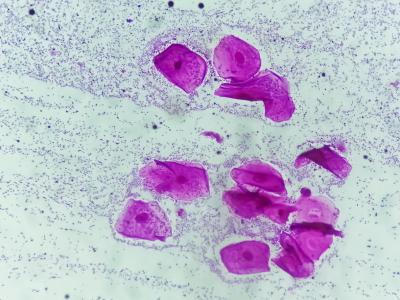WHO offers questionnaire for investigating MERS cases
The World Health Organization (WHO) yesterday released a nine-page interview questionnaire to help in investigation of suspected and confirmed MERS-CoV (Middle East respiratory syndrome coronavirus) infections.
The questionnaire is intended mainly for gathering information about how patients were exposed to the virus. It includes detailed questions about travel history and exposure to animals, foods, and sick persons.
Investigators have not yet discovered the animal reservoir of MERS-CoV or precisely how it spreads from person to person. The document is offered as a supplemental tool to go with investigation guidelines that the WHO released earlier.
WHO interview questionnaire
In other developments, an editorial in this week's New England Journal of Medicine offers an equivocal view on whether MERS-CoV will evolve into a more widespread threat.
The authors, Stanley M. Perlman, MD, PhD, and Paul B. McCray Jr., MD, of the departments of microbiology and pediatrics at the University of Iowa, write that coronaviruses are "notorious for adapting to new hosts," as exemplified by the SARS (severe acute respiratory syndrome) virus. They say that additional adaptation of MERS-CoV to humans is likely and would increase the chance of widespread infection.
However, they note that a recent statistical analysis suggested that the virus currently lacks pandemic potential. "Thus, in the absence of further adaptation or repeated introduction from community sources, widespread infection may not develop."
N Engl J Med editorial
Dengue runs rampant in Honduras
A state of emergency has been declared in Honduras over an outbreak of dengue fever, which has infected more than 12,000 and killed 16 so far this year, says a report today from the BBC. In over 1,800 of the cases, the risk of internal bleeding and death looms.
More than half the country's municipalities have reported cases, the story says. The Honduran government has said it will speed up its work to stop spread of the disease.
The worst dengue outbreak in Honduras occurred in 2010, when 83 people died, the story said.
Dengue is carried by Anopheles mosquitoes. Control measures include netting and mosquito repellents, and vaccine research is under way.
Symptoms include fever and joint pain. The World Health Organization (WHO) has said that the incidence of dengue has increased 30-fold over the past 50 years and that nearly half the world's population is at risk, according to the story.
Jul 31 BBC story
Policeman protecting polio vaccination team killed
A policeman who was guarding a polio vaccination team in Pakistan was shot and killed yesterday, reports a story from the Pakistan News Service (PakTribune.com).
The murder occurred in Pishin, a town 52 kilometers north of the north-central city of Quetta. The story says two gunmen riding a motorbike shot the policeman and fled after the incident.
The security of health workers carrying out polio vaccination campaigns, particularly those in Pakistan, has been of strong concern internationally. Pakistan, Nigeria, and Afghanistan are the only countries where polio is still endemic.
Jul 31 Pakistan News Service article
Jan 3 CIDRAP News story on security concerns
New foodborne illness outbreak guide for restaurants
Federal officials yesterday praised the Council to Improve Foodborne Outbreak Response (CIFOR) for the new guidelines it released to help food establishments respond to foodborne illness outbreaks, according to a press release from the US Department of Health and Human Services (HHS).
CIFOR is a multidisciplinary partnership of professional organizations and federal agencies designed to improve collaboration on food safety issues. The new guidelines spell out the steps retail food establishment owners, operators, and managers should take after receiving notification of an outbreak. It also outlines steps to take during different phases of an outbreak investigation.
HHS Secretary Kathleen Sebelius said in the press release, "When there is an outbreak of foodborne illness, the government and the food industry are of one mind. We have to find the cause and stop the outbreak."
The National Restaurant Associations and other industry groups helped develop the resource, according to the statement. The 80-page guide is available on the CIFOR Web site. It includes several tools such as menu ingredient list forms, employee health assessment forms, and a sample reopening checklist.
Jul 30 HHS press release
CIFOR foodborne illness response guidelines for food establishments
Coalition urges Congress to smooth path for new antibiotics
A coalition of 20 medical and other groups is renewing its appeal to Congress to smooth the approval pathway for new antibiotics intended to treat serious infections for which few treatment options exist.
The coalition, led by the Infectious Diseases Society of America (IDSA) and the Pew Charitable Trusts, sent letters to four senators and representatives urging them to work for legislation to create a "Limited Population Antibacterial Drug" (LPAD) pathway for critically needed antibiotics, in the face of growing antimicrobial resistance."
The LPAD approach would allow the Food and Drug Administration to approve new antibiotics on the basis of trials involving small subpopulations with the most serious illnesses, rather than large groups with a wide range of disease symptoms, according to the letter.
"A properly constructed LPAD pathway could make clinical trials shorter and less expensive and at the same time would allow for special labeling that would reflect the more limited data and help ensure limited use," says the letter.
"It is not feasible for antibiotics that treat serious infections due to highly resistant bacterial pathogens to be developed using traditional, large clinical trials due to the limited numbers of patients in whom these infections occur," the group asserts.
The coalition addressed one letter to Sen. Michael Bennet, D-Colo., and Sen. Orrin Hatch, R-Utah, and an identical one to Rep. Phil Gingrey, MD, R-Ga., and Rep. Gene Green, D-Tex. The four legislators have been active in supporting proposals to improve the antibiotics pipeline, said Jerica Pitts, an IDSA spokeswoman.
The coalition includes the American Medical Association, American Society for Microbiology, and Association for Professionals in Infection Control and Epidemiology, among others.













